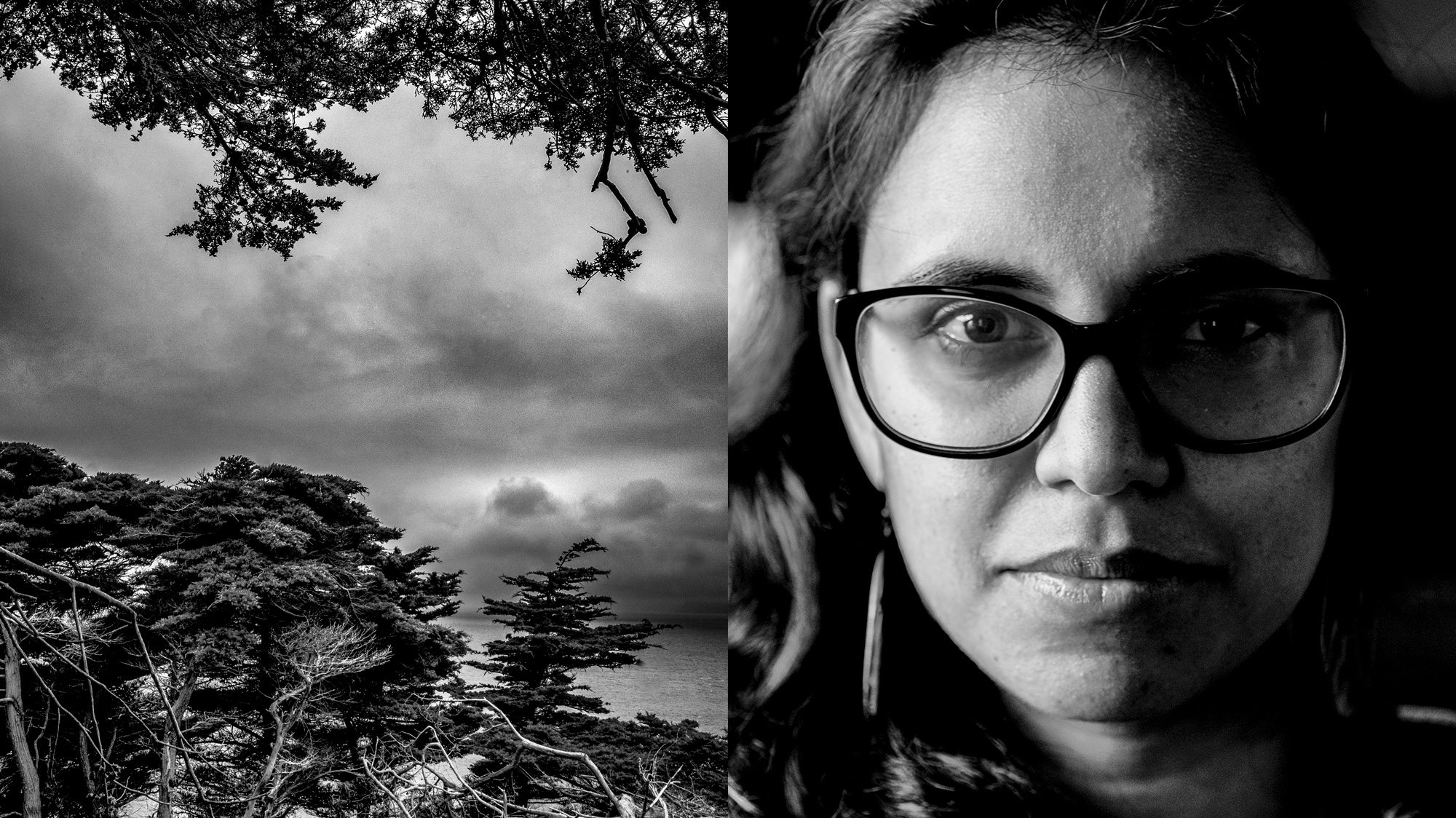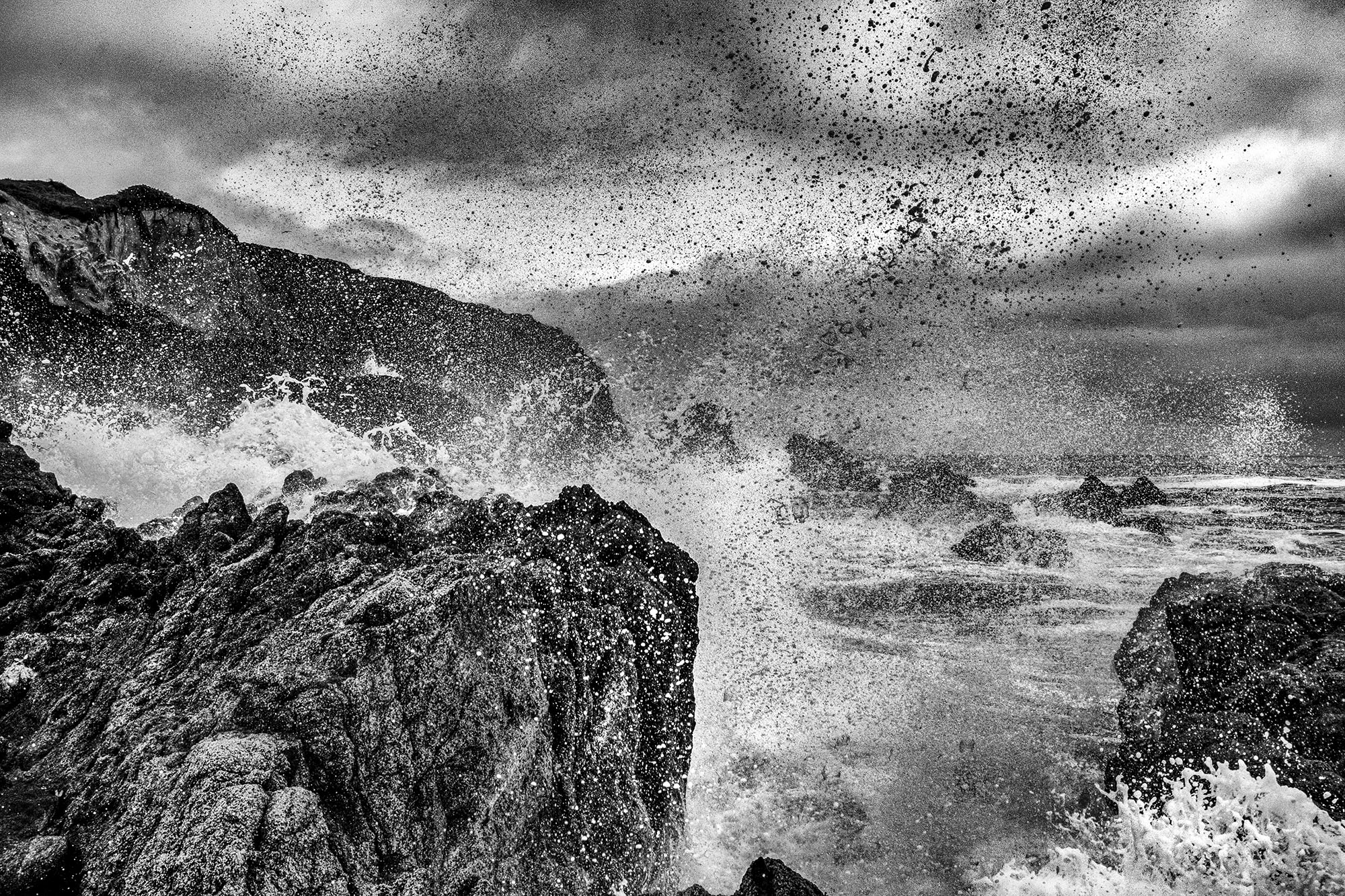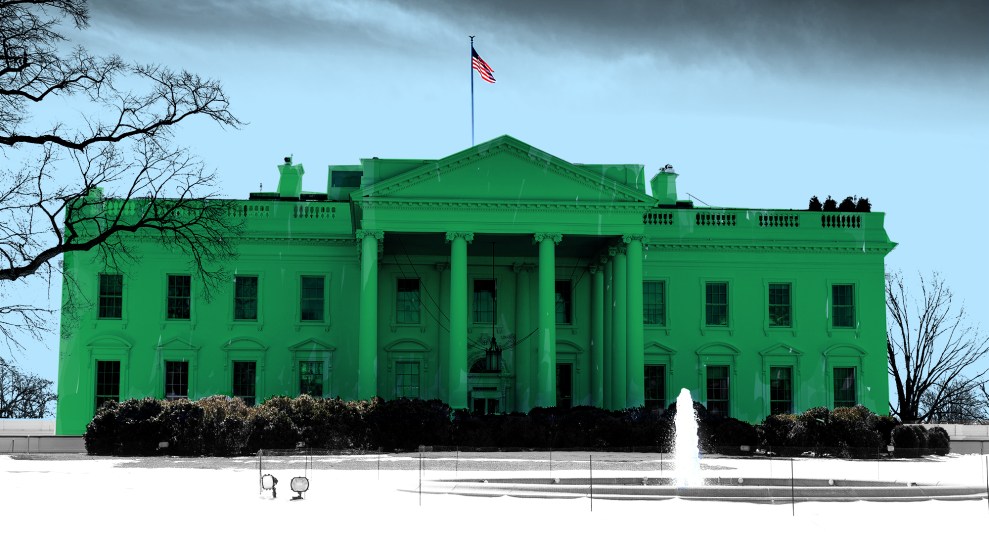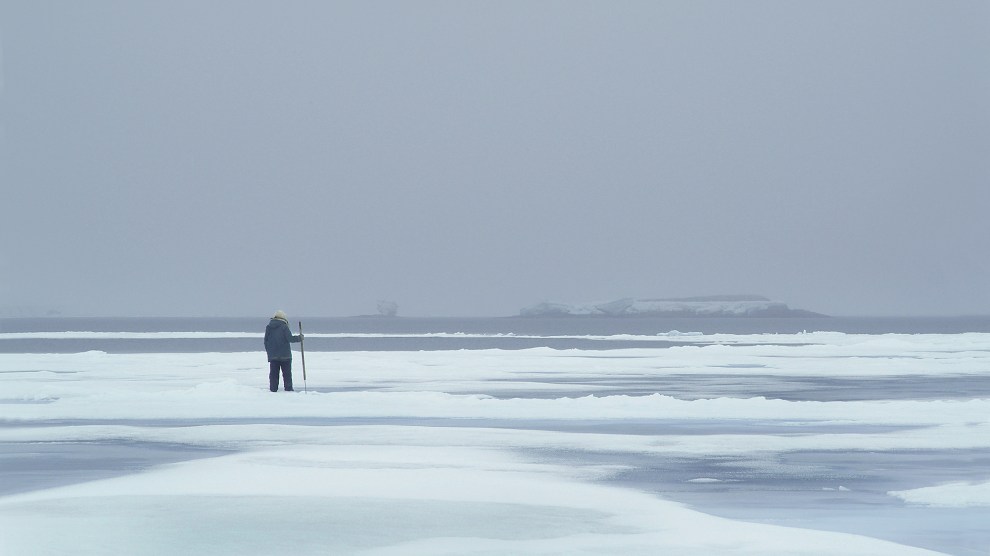On election night 2016, Kim Cobb, a professor at the School of Earth and Atmospheric Sciences at Georgia Tech, was on Christmas Island, the world’s largest ring-shaped coral reef atoll, about 1,300 miles south of Hawaii. A climate scientist, she was collecting coral skeletons to produce estimates of past ocean temperatures. She had been taking these sorts of research trips for two decades, and over recent years she had witnessed about 85 percent of the island’s reef system perish due to rising ocean temperatures. “I was diving with tears in my eyes,” she recalls.
In a row house made of cinder blocks on the tiny island in the middle of the Pacific Ocean, she monitored the American election results, using a satellite uplink that took several minutes to load a page. When she saw Donald Trump’s victory, she felt shock and soon descended into severe depression. “I had the firm belief that Washington would act on climate change and would be acting soon,” the 44-year-old Cobb says. “When Trump was elected, it came crashing down.”
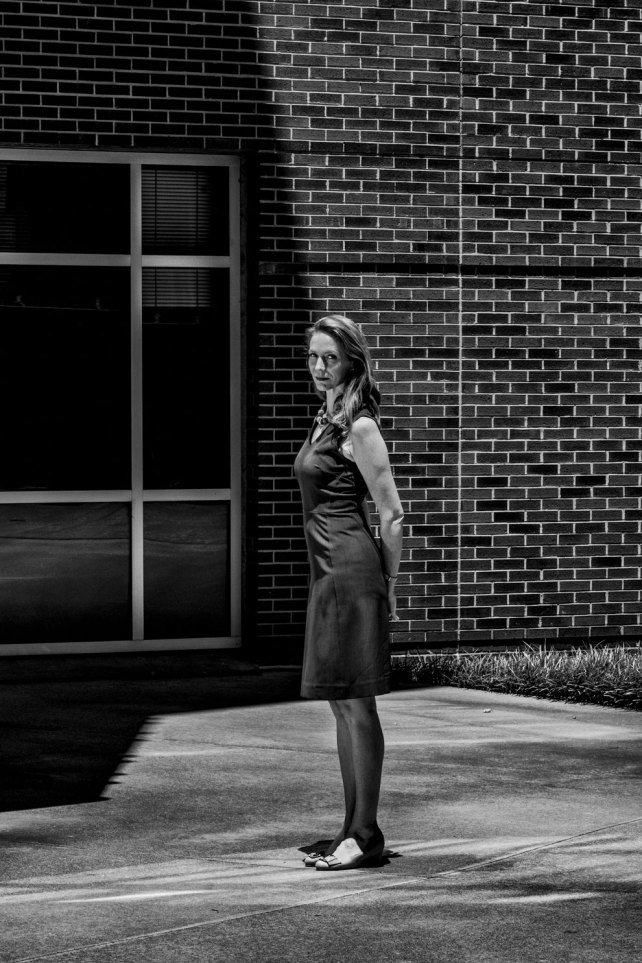
Kim Cobb entered an “acute mental health crisis” when Trump was elected and she realized the government would not be taking climate action.
Back home in Atlanta, Cobb entered what she now calls “an acute mental health crisis.” Most mornings, she could not get out of bed, despite having four children to tend to. She would sob spontaneously. She obsessed about the notion that the US government would take no action to address climate change and confront its consequences. “I could not see a way forward,” she recalls. “My most resounding thought was, how could my country do this? I had to face the fact that there was a veritable tidal wave of people who don’t care about climate change and who put personal interest above the body of scientific information that I had contributed to.” Her depression persisted for weeks. “I didn’t recognize myself,” she says.
For more articles read aloud: download the Audm iPhone app.
Nine months after the election, Priya Shukla, a Ph.D. student at the University of California-Davis who studies how climate change affects shellfish aquaculture and coastal food security, was in the Bodega Marine Laboratory, examining data showing rising ocean acidity caused by greenhouse gas emissions. She was also binge-listening to the podcast S-Town, which focused on an eccentric and troubled man prone to obsessing—ranting, really—about the possible apocalyptic effects of climate change. Shukla, 27 years old, realized she was “emotionally exhausted” by the toll of constantly scrutinizing the “huge tragedy” happening in the oceans. “I did not want to experience that fatigue,” she says, “because then I wouldn’t want to do this work anymore.” She decided to see a therapist. And these days she sometimes has to stop reading scientific papers: “I’m tired of processing this incredible and immense decline—and I’m a contributor to the problem. I have to walk away from the papers and don’t want to face myself in the mirror. I feel profound sadness and loss. I feel very angry.”
It’s hardly surprising that researchers who spend their lives exploring the dire effects of climate change might experience emotional consequences from their work. Yet, increasingly, Cobb, Shukla, and others in the field have begun publicly discussing the psychological impact of contending with data pointing to a looming catastrophe, dealing with denialism and attacks on science, and observing government inaction in the face of climate change. “Scientists are talking about an intense mix of emotions right now,” says Christine Arena, executive producer of the docuseries Let Science Speak, which featured climate researchers speaking out against efforts to silence or ignore science. “There’s deep grief and anxiety for what’s being lost, followed by rage at continued political inaction, and finally hope that we can indeed solve this challenge. There are definitely tears and trembling voices. They know this deep truth: They are on the front lines of contending with the fear, anger, and perhaps even panic the rest of us will have to deal with.”
While Americans feel “an increasing alarm” about climate change, according to a survey conducted by the Yale Program on Climate Change Communication, scientists have been coping with this troubling data for decades—and the grinding emotional effects from that research are another cost of global warming that the public has yet to fully confront. Before you ask, there is no scientific consensus regarding the impact of climate research on the scientists performing it. It hasn’t been studied in a systematic way.
But in a single study, two years ago, Lesley Head and Theresa Harada, two geography scientists in Australia, published a paper examining “emotional management strategies” used by a sample of Australian climate scientists. Head and Harada found that daily immersion in the subject caused anxiety for the scientists, exacerbated by the difficulty of “protecting the psyche from the subject matter of climate change.” The scientists’ thinking was more often “pessimistic than optimistic,” and they tended to use “diverse distancing practices” to “separate themselves from emotions.” They generally said they enjoyed their work, but Head notes that “it’s hard to imagine it’s not something that could cause manifestations down the track. For the most part, these academics are well-established in their jobs and already have demonstrated resilience in a competitive system. But you can’t help but wonder what the burden is doing to people that may or may not be visible.”
Are scientists, then, canaries in a psychological coal mine? Is understanding their grief important because their anxiety could become more widespread within the general population? “That’s why,” Head explains, “I chose them as a research sample.”
Put another way, climate scientists often resemble Sarah Connor of the Terminator franchise, who knows of a looming catastrophe but must struggle to function in a world that does not comprehend what is coming and, worse, largely ignores the warnings of those who do. “An accurate representation” of the Connor comparison, one scientist darkly notes, “would have more crying and wine.”
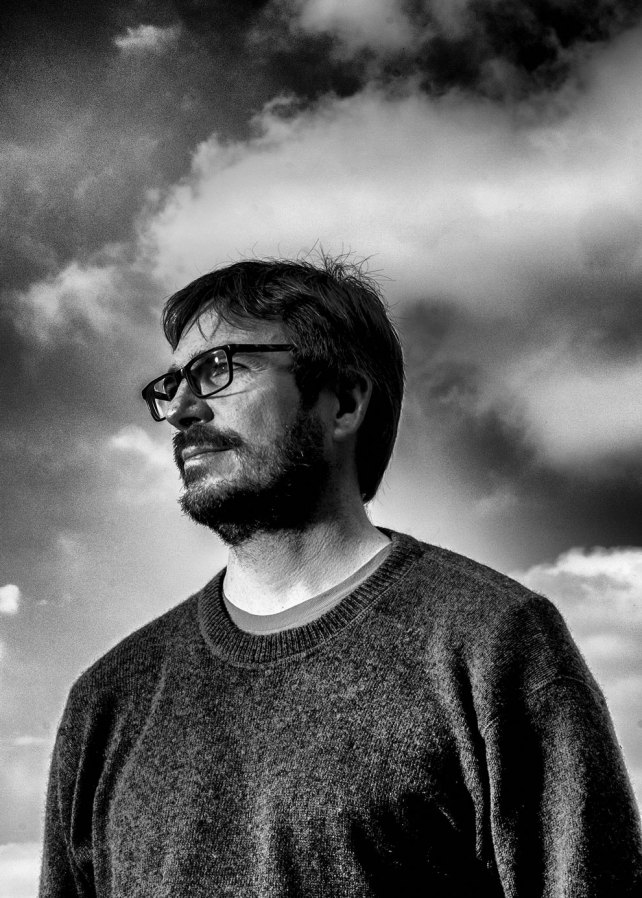
So what is it like to be cursed with foreknowledge that others ignore? Peter Kalmus, who received his B.A. and Ph.D. from Harvard and Columbia, respectively, spent about a decade working in astrophysics. He then moved to ecological forecasting based on satellite data, and something shifted for him. “Studying earth science and thinking about climate change is a totally different ballgame than thinking about astrophysics,” he says. “Astrophysics was pure science. I was looking for gravitational waves. It had no implication for the possible collapse of human civilization.” But the unrelenting momentum of climate change does. “I’m always thinking about it,” he says. “That can be a burden. Whenever friends talk about flying off to vacation, I feel compelled to point out the large carbon cost to flying. I’d like to take a vacation from thinking about it. I’m not sure that is psychologically possible.”
During the recent wildfires in California, where he lives, Kalmus became irritable because the link between natural disasters and climate change was not front and center in media coverage. Like many climate scientists, he is often hit by waves of grief. Kalmus once called his congressional representative to support a piece of climate change legislation. “I was explaining to the staffer why it was urgent, and I started crying,” he says. “For me, the grief comes up unexpectedly.”
Sarah Myhre, a former senior research associate at the University of Washington’s School of Oceanography, experiences “a profound level of grief on a daily basis because of the scale of the crisis that is coming, and I feel I’m doing all I can but it’s not enough,” she says. “I don’t have clinical depression. I have anxiety exacerbated by the constant background of doom and gloom of science. It’s not stopping me from doing my work, but it’s an impediment.” She tried anti-anxiety medication, which didn’t improve things, so she cut back on caffeine. She tries not to think too much about the future that awaits her five-year-old son.
When she was a graduate student in 2010, Myhre recalls, she attended a summer program that included the world’s top scientists on climate modeling. One presented research on how increased CO2 levels posed frightening scenarios. She asked him how he was able to talk to nonscientists and communicate the implications of this work, which can be hard to understand. “I don’t talk to those people anymore,” she remembers him replying. “Fuck those people.” After that, Myhre went to her hotel room and wept. As she saw it, his anger was driven by the fact that his expertise—his foresight—was not broadly recognized. “People don’t know what to do with their grief, and it is manifested in anger,” she says.
Jacquelyn Gill, a paleontologist at the University of Maine who co-hosts a podcast on climate change called Warm Regards, says she’s “not depressed but angry, all the time, and anger can be empowering or debilitating. I swing between both. Being constantly angry is exhausting.” But, she adds, it takes a certain resilience to be a scientist in America: “There are so few jobs, so few grants. You’re always dealing with rejection. You have to have a built-in ability to say ‘fuck it.’”
Katharine Wilkinson, who has a Ph.D. in geography and the environment, is vice president for communication and engagement at Project Drawdown, a group of scientists and activists that assembles proposed climate change solutions. She makes a distinction between denialism and bystanderism, which takes the form of people saying “they care about it” but not engaging in meaningful action: “That’s when I want to shake people and say, ‘You know how little time we have?’” She has noticed that almost everyone in her line of work seems “to have one dark emotion that is dominant. For some, it’s anger or rage. For me, it’s deep grief—having eyes wide open to what is playing out in our world, and we have a lukewarm response to it. There is no way for me not to have a broken heart most days.”
For several years, Eric Holthaus, a meteorologist-turned journalist, has written about his own efforts to contend with climate change–induced depression. “I lose sleep over climate change almost every single night,” he wrote last year. “I can’t remember how long this has been happening, but it’s been quite a while, and it’s only getting worse. I confess: I need help.” Holthaus went to see a counselor and, as he put it, the therapist “seemed unprepared for my emotional crisis. His simple advice was, ‘Do what you can.’”
Scientists have been contending with a form of this anguish for years. In 2014, Camille Parmesan, a biologist who in 2007 was involved in the climate change work that shared a Nobel Peace Prize with Al Gore, told Grist that two years earlier she had become so “professionally depressed” that she had considered quitting the climate research field. Faith Kearns, a climate scientist specializing in wildfires and water management, noted in a 2013 blog post that conducting research in this area can be a “grief-filled endeavor.” And she asked, “What are we to do with that grief?” Professionally coping with grief is part of the job training for doctors, caregivers, and those working in humanitarian or crisis situations. But for scientists? “It’s a subject rarely broached,” she says.
Some climate researchers speak of experiencing stark alienation, even as they try to have faith that what they and their colleagues are doing can make a difference. Myhre describes it “like I’m looking at the world through a looking glass, like I’ve fallen down a rabbit hole.” The joys of adult life—new cars, trips on planes, even having children—become fraught with implications for increased emissions. She finds it painful to watch “scientific colleagues standing on the sidelines being silent” and not participating in the political fray over climate change. With her expertise undervalued generally, she observes, “I feel like I’m walking around in an isolation chamber.” Kalmus notes that when he moved into climate change science, “I felt totally alienated from the people around me. My parents didn’t get it. My friends didn’t want to talk about it. Other graduate students didn’t want to talk about it…It was a very weird disconnected feeling.” About a year ago, Shukla and her partner decided not to have children out of a concern about contributing to climate change. “I feel uncomfortable discussing this with colleagues,” she says. “It seems nihilistic.” She avoids conversations in which she might have to explain this decision, which further exacerbates her “sense of isolation.”
Certainly not all climate scientists feel quite so burdened. David Grinspoon, an astrobiologist and critically acclaimed author who focuses on planetary climate evolution, acknowledges his anguish over the fact that society is not adequately responding to the science-based warnings, but instead of experiencing a deep funk, he says, “I’ve had the opposite sense.” Grinspoon is buoyed by his encounters with younger people he finds idealistic and hopeful: “I would expect the opposite. I would expect more nihilism. Sure, there is a lot of sardonic humor at the bar at our scientific meetings. But I’m more struck by the lack of cynicism and despair generally among scientists, even though there are some who are discouraged and cynical.”
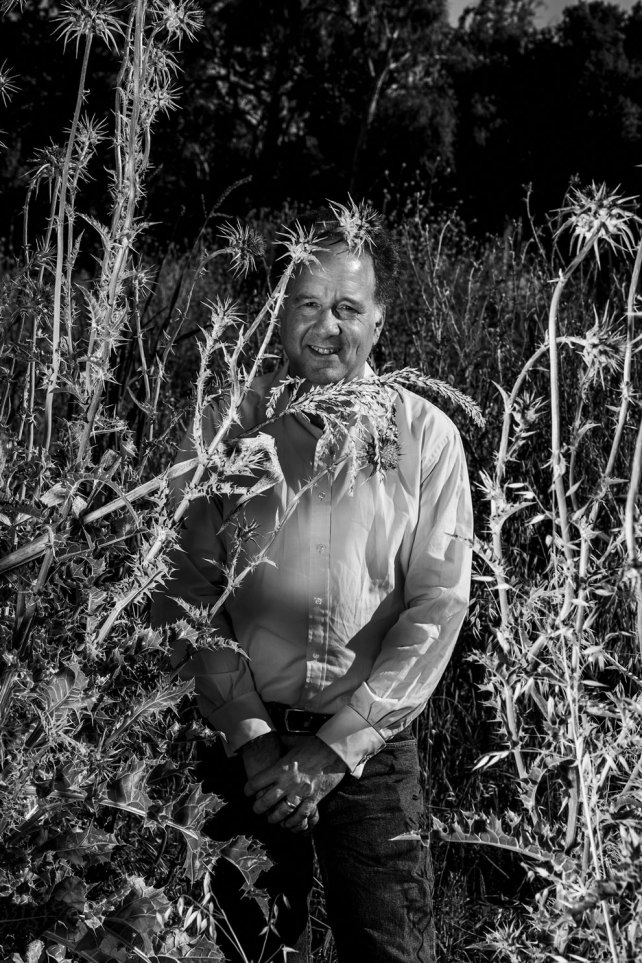
Ken Caldeira’s “dominant strategy is to intellectualize it and say, ‘What a crazy species we are.'”
Ken Caldeira, a climate scientist at the Carnegie Institution for Science and a Stanford professor, also studies the impact of climate change on coral reefs. “I see reefs that are over 90 percent dead. That’s a real tragedy. I see it and experience it,” he says. And his emotional reaction? “I plod on.” He adds, “Maybe I’ve become better at suppressing my feelings…I can still see this is really tragic: Fossil fuel emissions killed 90 percent of this reef. But my dominant strategy is to intellectualize it and say, ‘What a crazy species we are.’ As a scientist, my only role is to generate useful information.”
For Grinspoon and Caldeira, engaging in work that addresses the problem—Grinspoon is an award-winning science communicator and Caldeira has been developing ideas for alternative fuel systems and consults with Bill Gates on climate change—can alleviate some of the frustration and anger that come with the job. Michael Mann, the well-known climate scientist who has spent years clashing with climate deniers, observes that “colleagues who have convinced themselves we have crossed a tipping point—physical or political—and we won’t avert catastrophic climate change clearly become depressed.” But Mann, who has had to contend with death threats and campaigns to have him fired from Penn State, derives motivation from being in battle: “My involvement in the public discourse is empowering.” (Still, he noted in a recent video that he does occasionally cry when he talks to an audience of young people about the “denial industry,” and how it has misled people about the “greatest challenge we face as a civilization.”)
Caldeira offers a blunt comparison: “I had a girlfriend once who was a social worker who had to deal with abused children. She had to deal with real shit every day. Climate scientists have it easy.” And Kate Marvel, a climate scientist and science writer, went even further in a tweet in January: “In a world where people have to deal with racism, inequality, and resurgent fascism, the notion that climate science is uniquely depressing is…weird.” But she later conceded, “If you’re a gloomy person, this work gives you a lot of reinforcement.”
Are some climate scientists falling into a trap of believing their own issue is paramount? Are some just being too sensitive? Four years ago, Renee Lertzman, who describes herself as an environmental psychologist, published an academic book titled Environmental Melancholia, a term she defines as a pervasive state afflicting people who become overwhelmed about the environmental challenges they encounter. As a researcher, she has found that climate scientists face a distinct dilemma: “They have to deal with the surrealism of knowing what we know and living within a society choosing not to know or willing itself not to know…For them it’s incredibly difficult to find yourself in a role not asked for: ‘I didn’t choose to be suddenly in the midst of a swirl of political and cultural and social trauma.’” And comparing climate science work to social justice activism—or anything else—is misguided, Lertzman argues: “Different social-political traumas have different registers. It’s not more or less. Climate change is its own unique trauma. It has to do with human existence.” And yet, even given the legitimacy of the trauma others experience, she points out there’s something unique about the climate crisis: “Climate scientists are dealing with what we don’t want to deal with”—not just the existential planetary threat but the consequences of our own actions.

Among the most effective coping strategies for scientists stricken by their work is talking about their pain—which may not be as simple as it sounds. The culture of professional science places a premium on objective facts and dispassionate discourse—not subjective feelings and emotional conversations. Speaking out about the implications of climate research, the lack of sufficient government action, and the personal impact of all this might be alien to a scientist trained in data-is-all methodology. Some wonder whether such disclosures could undercut their standing in their academic communities and impede grants and professional advancement. “As a woman scientist, I am concerned that any portrayal of me as being hyperemotional can be corrosive,” says one scientist, who asks not to be identified. “The culture of science upholds certain gender norms and behaviors.” But for some, openly acknowledging and expressing their emotions, as Kim Cobb says, is the “pathway” forward.
A month after being crushed by post-election depression in 2016, Cobb was at the annual American Geophysical Union conference in San Francisco, where she joined a couple dozen scientists speaking at a Stand Up for Science rally, which protested Trump’s dismissal of climate change as a global threat. On the steps of a church near the Moscone Convention Center, where 24,000 of her fellow scientists were meeting, Cobb called on her colleagues to combine their research with public engagement: “We have for too long as scientists rested on the assumption that by providing indisputable facts and great data that we are…counter[ing] the forces against science. And obviously that strategy has failed miserably. What we need right now is all the scientists who care so deeply…to shake off the fear that holds them back from engaging in this space.” This was, she says, the first time she had placed her “personal voice and body on the line.”
Two weeks later, on New Year’s Day—the sixth birthday of her twins—she made a “climate resolution”: She would walk her kids to school twice a week and ride a bike to work twice a week. (She went on to become a daily bike commuter.) She put solar panels on her roof. She became a vegetarian. Then she began discussing her feelings during her scientific presentations. After showing time-lapse photos depicting the devastation of reefs, she would end with a black screen and acknowledge that she had previously fallen into depression. She would next describe what she was doing personally to reduce emissions and provide ideas to the audience for doing the same. She realized that scientists cannot simply say, “‘Read the IPPC report.’ We have to say, ‘Science tells us that it’s not too late, but we have to pull hard, every day, together, to make a difference. And look over here—I’m loving my low-carbon life, and this city is thriving with its low-carbon choices, and we’ll be healthier and happier if we do this. Will you join me and millions of other Americans who are building a sustainable world?’ You don’t have to know where we’ll end up. You just have to know what path we’re on.”
This approach—adding emotion to data—did not go over well with all her scientific colleagues. “Some questioned it. Some have smirked,” she says. “This is not what a scientist is supposed to look like.” Others—mainly those on the younger side—have thanked her for sharing: “I hear from colleagues that others say they disapprove of my interaction with the media and what they call my advocacy. But I have tenure and am an endowed professor. The rest of my life is about Impact with a capital I.”
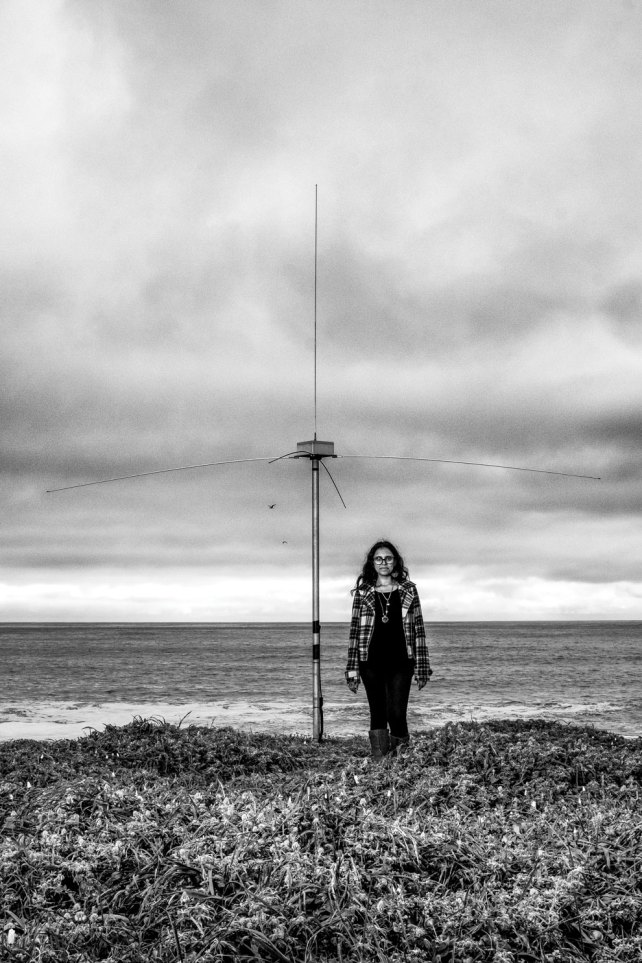
Priya Shukla works to “unguilt” herself by driving a Prius, telecommuting, and buying offsets after flying.
Shukla first responded to her own climate research grief by seeing a therapist—once. But, despite knowing that a truly effective response demands radical policy shifts, she still altered her lifestyle practices. Now she drives a Prius and telecommutes. “I unguilt myself,” she says. “When I fly, I’m wracked with climate guilt and will buy offsets. I tell myself a lot of ‘at leasts.’ At least I’m trying. At least it’s not that bad yet.” And in a process she describes as “more therapeutic than a therapy session,” she talks about climate change to people who are not scientists. For Sarah Myhre, talk therapy has been useful—and she has found consolation as a science communicator: “I don’t wonder what to do with my life. There is a lot of clarity. My job is not to peddle hope. I talk about anger, courage, joy, and grief.” Faith Kearns has turned to yoga and nature-related activities for respites. “I grew up in an alcoholic family,” she says. “You have to learn you’re not in control of everything…That can come handy when dealing with climate change.”
Peter Kalmus meditates often. “I’ve trained my brain to not torture myself about things that are outside my control,” he says. He also founded No Fly Climate Sci, a group of earth scientists, academics, and members of the public who have pledged not to fly or to fly less often. He too has become an outspoken advocate about emissions. But when it comes to emotions, he says, “I still haven’t figured out a good venue for talking about this. Scientists are not trained to discuss how data makes us feel. They are trained to quantify and evaluate and communicate it with clarity to our colleagues.” Perhaps scientists discussing their distress is a good first step: “Once we figure out how to talk about this with each other, maybe we can figure out how best to talk to the public. To pretend we are Vulcans without emotions and are perfect machines makes the problem worse.”
Are these scientists experiencing the Cassandra Dilemma: seeing the potential calamity ahead yet not being heeded by much of society? That could certainly throw anyone into a psychological tailspin and cause them to wonder, what’s the damn point? Yet Cobb notes the goal is to avoid such despair: “The way I see it, my role is to provide hope…And right before folks decide whether they’re going to care or not, whether it’s worth the fight…they will likely look to those of us who were proven correct, who have always had their facts straight.”
But the despair experienced by some scientists might have a benefit. “More scientists are bringing their emotions and hearts to the forefront of their work—getting bolder, more impassioned, more provocative,” says Christine Arena, the producer of the docuseries on climate change. “In a way, this collective grief is making their outreach more effective.”
Katharine Wilkinson points out, “Right now, we prioritize technical training in science and policy. But the tools of the trade will become increasingly emotional and psychological.” At a recent panel discussion, she recalls, she blurted out, “I have no child and I have one dog, and thank god he’ll be dead in 10 years.” Afterward, people asked Wilkinson if she truly believed that. “The truth is, I do,” she says. “And it’s only going to get more intense—the emotional nature of this work—as climate change happens and the necessary actions become more urgent.”
